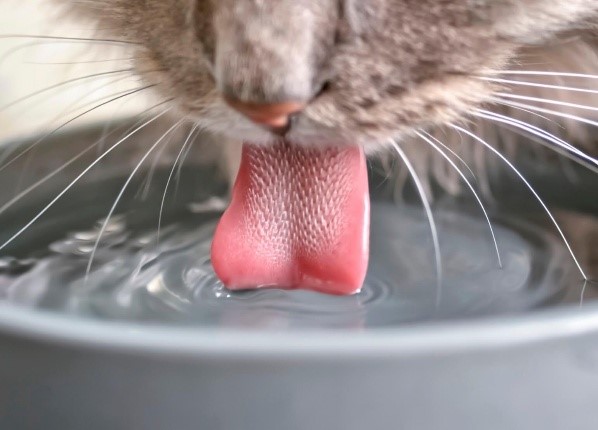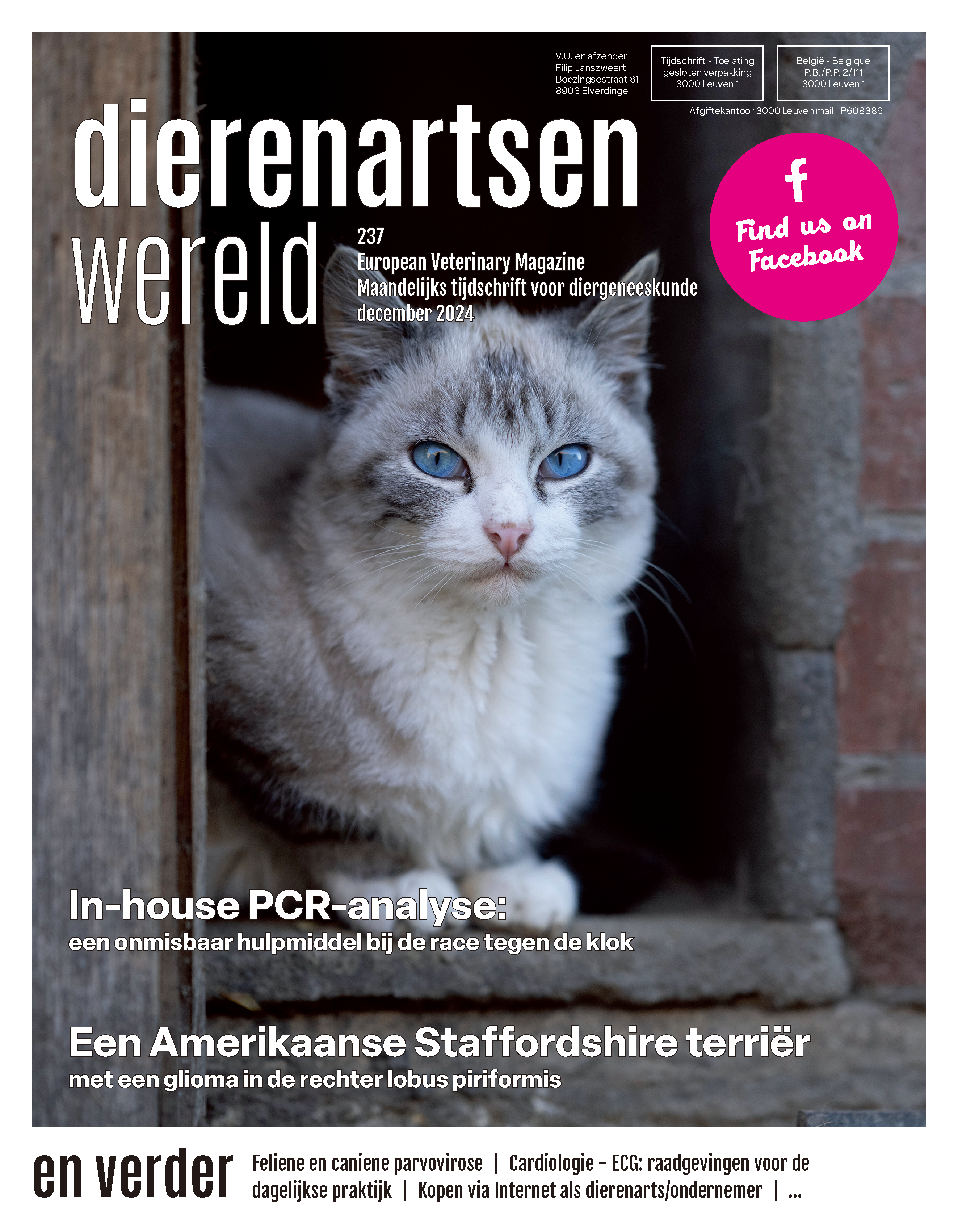Von Willebrand’s Disease (vWD) in Dogs

Von Willebrand Disease (vWD) is the most common inherited bleeding disorder in dogs. It’s caused by a deficiency or dysfunction of a specific blood clotting protein called von Willebrand factor (vWF). This protein helps blood platelets stick together to seal broken blood vessels and stop bleeding. Without enough functional vWF, dogs with vWD can experience excessive or prolonged bleeding. There are three types of von Willebrand disease: Type 1: There are low amounts of vWF proteins with normal structure. Type 2: Some vWF proteins are present,but there is an abnormal structure of the proteins which doesn’t function normally. Type 3: There are little to no vWF proteins available; this is the most severe form. Signs and Symptoms Symptoms of vWD can vary from mild to severe. Common signs include: Nosebleeds Bleeding gums Prolonged bleeding after surgery or injury Blood in urine or stool Bruising easily Diagnosis and Treatment A veterinarian can diagnose vWD through blood tests such as basic blood cell count, chemistry, and coagulation profile that measure vWF levels and clotting ability. DNA testing is also available to identify carriers, especially in breeds prone to the disease. There’s no cure for vWD, but mild cases often require no treatment. In more serious cases, veterinarians may use medications like Desmopressin acetate (DDAVP) or blood transfusions to manage bleeding episodes. It’s important to avoid medications like aspirin, heparin or sulfa-type antibiotics that can worsen bleeding. Prevention Responsible breeding practices are key to reducing the spread of vWD. Breeders should screen their dogs for the disease and avoid breeding affected animals.
Qmini Real-Time PCR Series Maintenance Video

Overseas Sales Representative
Overseas Sales Representative Apply now Canada Full-time Requires business travel (total duration per year TBD) Hiring 1–2 positions. Overseas Sales, Overseas Sales Manager, Marketing Planner Read more Job description Demonstrates expert knowledge of IVDs product, customer base (animal clinics and vets), business strategy and competitive environment; stays abreast of key market access issues/trends important for educating customers. Uphold high ethical and performance standards in all business interactions to preserve bioguard’s outstanding reputation in the animal disease community. Collaborating with cross-functional teams – from production to product marketing and legal – to produce effective communications. Obtaining necessary consent and providing final approval on all marketing communications. This role is to be filled within Latin America. Requirements Able to communicate in English or Chinese. Bachelor’s degree in veterinary medicine, medical laboratory science and biotechnology, biotechnology, biochemistry, or related field preferred. Institutional sales experience preferred. Possess strong interpersonal skills to establish rapport swiftly and maintain relationships effectively. Demonstrated motivation, goal orientation, and exceptional organizational abilities, particularly in multitasking environments. Job description Demonstrates expert knowledge of IVDs product, customer base (animal clinics and vets), business strategy and competitive environment; stays abreast of key market access issues/trends important for educating customers. Uphold high ethical and performance standards in all business interactions to preserve bioguard’s outstanding reputation in the animal disease community. Collaborating with cross-functional teams – from production to product marketing and legal – to produce effective communications. Obtaining necessary consent and providing final approval on all marketing communications. This role is to be filled within Latin America. Requirements Able to communicate in English or Chinese. Bachelor’s degree in veterinary medicine, medical laboratory science and biotechnology, biotechnology, biochemistry, or related field preferred. Institutional sales experience preferred. Possess strong interpersonal skills to establish rapport swiftly and maintain relationships effectively. Demonstrated motivation, goal orientation, and exceptional organizational abilities, particularly in multitasking environments.
Qmini Real-Time PCR Series -Avian Pathogen Nucleic Acid Extraction Kit Instruction Video

Why Are Cats More Prone to CKD (Chronic Kidney Disease)?

Chronic kidney disease (CKD) can affect cats at any age but is more commonly diagnosed in middle-aged and senior cats, typically those over seven years old. There are several reasons that causes CKD, which are: 1. Natural Aging Process: Unlike dogs, whose kidneys tend to fail due to infections or inherited conditions, CKD in cats is often linked to gradual wear and tear on the kidneys as they age. 2. Low Thirst Drive: Cats evolved from desert animals and naturally have a low thirst drive. This means they don’t drink as much water as they should, putting extra strain on their kidneys. 3. Protein Metabolism: Cats require a high-protein diet, but their kidneys have to filter out protein waste. Over time, this can contribute to kidney damage. 4. Genetic Factors: Some breeds, like Persians, Siamese, and Abyssinians, are more genetically predisposed to kidney disease. 5. Silent Progression: CKD in cats often goes unnoticed because symptoms—like weight loss, increased thirst, and urination—develop slowly. By the time a cat is diagnosed, the disease is usually in an advanced stage.
Bioguard x 92nd PVMA : Advancing Veterinary Diagnostics

The 92nd PVMA Scientific Conference and Annual Convention has been an incredible experience filled with “learning, innovation, and collaboration”. As we wrap up Day 1 & 2, Bioguard is proud to have played a part in this event in philippine, bringing comprehensive veterinary diagnostic solutions to phillippine veterinary field. Showcasing Bioguard Veterinary Diagnostics Products At 92nd PVMA, Bioguard introduced two of our advanced diagnostic equipment: Qmini Real-Time PCR Analyzer – A rapid and precise in-clinic PCR test that enhances veterinary disease detection. miniCHEM Biochemical & Coagulation Analyzer –A bifunction biochemistry analyzer to deliver #reliable #results, and all it needs is #MicroVolume of #blood sample for each #test. Veterinarians and industry professionals had the opportunity to explore our comprehensive solutions and discussions about their potential impact on the veterinary healthcare field. We appreciate the overwhelming interest expressed by attendees. Engaging with Veterinary Experts Beyond showcasing our products, PVMA 2025 allowed us to connect with leading professionals in the veterinary field. Among them were: Dr. Joel Tolentino – A professional veterinarian, also our speaker for bioguard online webinars, Canine Vector Borne Diseases- Diagnosis in the Companion Animal Practice Dr. Paul – The first veterinarian in the Philippines to install the Qmini Real-Time PCR Analyzer. Dr. Paul is going to lead a workshop with Maveson next month, further educating veterinarians on advanced diagnostic techniques. These interactions reinforce our commitment to supporting veterinarians with the latest diagnostic advancements, ensuring better pet healthcare. Future Commitment to Veterinary Experts Bioguard remains dedicated to delivering high-quality, innovative veterinary diagnostic solutions that empower veterinarians worldwide. We extend our heartfelt gratitude to all who visited our booth, engaged in discussions, and contributed to the success of PVMA 2025. For further information about our diagnostic solutions, feel free to contact us: 📩 Email: service@bioguard.com.tw PVMA webisite: https://www.facebook.com/profile.php?id=100064780414291 We look forward to seeing you again at future veterinary conferences!
On-Site Technical Support
On-Site Technical Support Apply now Europe Full-time Requires business travel (total duration per year TBD) Hiring 1–2 positions. Business support, Product after-sales technical services Read more Job description Resolve Issues Related To The Product. Managing And Processing Customer Orders. Prepare Accurate And Timely Reports. Researching Technical Issues. Configure Operating Systems. Monitor And Maintain Bioguard Products. Provide On-site Support. Responding To Client Vet Support Requests. Tracking And Managing Work Records. Monitoring Protocols And Ensure Adherence. Providing Basic Product Training Requirements Proficient in English. Bachelor’s degree in veterinary medicine, medical laboratory science and biotechnology, biotechnology, biochemistry, or related field required. Institutional sales experience preferred. Strong interpersonal skills with ability to establish rapport quickly, build and maintain relationships. Highly motivated, goal oriented with strong organizational skills, especially in a multi-tasking environment. Ability to work both independently and as part of a team. Computer proficiency (Microsoft Windows, Excel, Word and Outlook). Job description Resolve Issues Related To The Product. Managing And Processing Customer Orders. Prepare Accurate And Timely Reports. Researching Technical Issues. Configure Operating Systems. Monitor And Maintain Bioguard Products. Provide On-site Support. Responding To Client Vet Support Requests. Tracking And Managing Work Records. Monitoring Protocols And Ensure Adherence. Providing Basic Product Training Requirements Proficient in English. Bachelor’s degree in veterinary medicine, medical laboratory science and biotechnology, biotechnology, biochemistry, or related field required. Institutional sales experience preferred. Strong interpersonal skills with ability to establish rapport quickly, build and maintain relationships. Highly motivated, goal oriented with strong organizational skills, especially in a multi-tasking environment. Ability to work both independently and as part of a team. Computer proficiency (Microsoft Windows, Excel, Word and Outlook).
Overseas Sales Representative (Latin America)
Overseas Sales Representative (Latin America) Apply now Latin America Full-time Requires business travel (total duration per year TBD) Hiring 1–2 positions. Overseas Sales, Overseas Sales Manager, Marketing Planner Read more Job description Demonstrates expert knowledge of IVDs product, customer base (animal clinics and vets), business strategy and competitive environment; stays abreast of key market access issues/trends important for educating customers. Uphold high ethical and performance standards in all business interactions to preserve bioguard’s outstanding reputation in the animal disease community. Collaborating with cross-functional teams – from production to product marketing and legal – to produce effective communications. Obtaining necessary consent and providing final approval on all marketing communications. This role is to be filled within Latin America. Requirements Native Spanish speaker, able to communicate in English or Chinese. Bachelor’s degree in veterinary medicine, medical laboratory science and biotechnology, biotechnology, biochemistry, or related field preferred. Institutional sales experience preferred. Possess strong interpersonal skills to establish rapport swiftly and maintain relationships effectively. Demonstrated motivation, goal orientation, and exceptional organizational abilities, particularly in multitasking environments. Job description Demonstrates expert knowledge of IVDs product, customer base (animal clinics and vets), business strategy and competitive environment; stays abreast of key market access issues/trends important for educating customers. Uphold high ethical and performance standards in all business interactions to preserve bioguard’s outstanding reputation in the animal disease community. Collaborating with cross-functional teams – from production to product marketing and legal – to produce effective communications. Obtaining necessary consent and providing final approval on all marketing communications. This role is to be filled within Latin America. Requirements Native Spanish speaker, able to communicate in English or Chinese. Bachelor’s degree in veterinary medicine, medical laboratory science and biotechnology, biotechnology, biochemistry, or related field preferred. Institutional sales experience preferred. Possess strong interpersonal skills to establish rapport swiftly and maintain relationships effectively. Demonstrated motivation, goal orientation, and exceptional organizational abilities, particularly in multitasking environments.
R&D Personnel
R&D Personnel Apply now Taiwan Full-time No business travel or overseas assignments required. Hiring 1–2 positions. Biotechnology R&D Personnel, Veterinarian, Laboratory Technician Read more Job description Experience in protein expression, purification, and design. Experience in cell culture. Relevant experience in animal experiments. Passionate about academic research and responsibility. Complete tasks assigned by supervisors. Requirements More than 1 year of relevant work experience. Laboratory experience is preferred. Educational requirement: Master’s degree or higher in Biology or related fields, such as Veterinary Medicine, Animal Science, or Biomedical Sciences. Experience in operating laboratory equipment. Experience in planning and executing new drug R&D experiments. Job description Experience in protein expression, purification, and design. Experience in cell culture. Relevant experience in animal experiments. Passionate about academic research and responsibility. Complete tasks assigned by supervisors. Requirements More than 1 year of relevant work experience. Laboratory experience is preferred. Educational requirement: Master’s degree or higher in Biology or related fields, such as Veterinary Medicine, Animal Science, or Biomedical Sciences. Experience in operating laboratory equipment. Experience in planning and executing new drug R&D experiments.
Bioguard’s Cutting-Edge Technology Gains International Recognition in Dierenartsen Wereld Magazine

Bioguard is dedicated to innovation in animal health, providing efficient and precise diagnostic solutions for veterinarians and animal care professionals worldwide. We are honored to be featured in the renowned European veterinary magazine, Dierenartsen Wereld, where we share insights with international veterinary experts on the latest advancements in clinical diagnostics and contribute to the development of veterinary medicine. Dierenartsen Wereld is one of the most influential veterinary publications in Europe, focusing on clinical research, diagnostic technologies, and industry trends to provide authoritative information for veterinarians globally. Our publication not only highlights Bioguard’s expertise in veterinary diagnostics but also strengthens our collaboration and knowledge exchange with international experts. Accurate diagnostics are crucial for clinical decision-making. At Bioguard, we continuously strive to enhance diagnostic efficiency, reduce testing time, and help veterinarians respond swiftly to clinical challenges. Our advanced technology improves diagnostic accuracy while minimizing unnecessary treatments, ensuring a more scientific approach to animal healthcare. Bioguard remains committed to advancing veterinary medicine through innovation, providing global veterinary professionals with effective clinical support. We invite you to read the December issue of Dierenartsen Wereld and stay updated on the latest developments in veterinary science. 📖 For more information, visit Dierenartsen Wereld 🔗 https://dierenartsenwereld.be/
